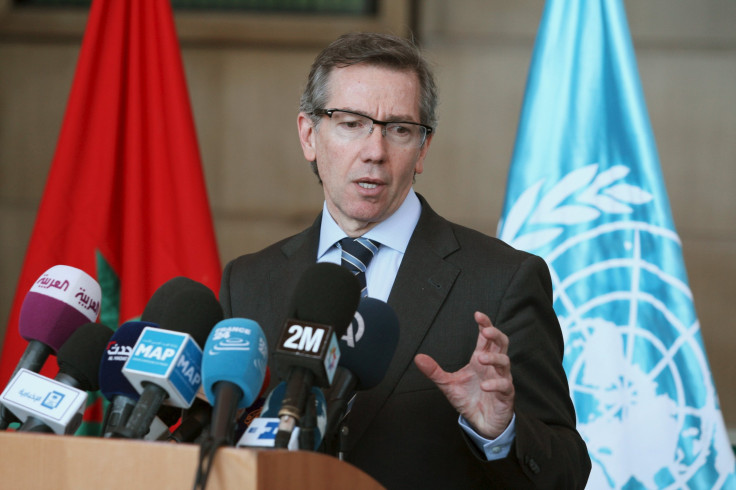Libya Crisis: UN Proposes National Unity Government, Warring Factions Denounce 'Unwise' Decision

The United Nations Thursday put forward a proposal for a national unity government in Libya in its latest attempt to end the conflict in the region. Since 2014, Libya has been caught up in bloody conflict that has pitted the internationally recognized government in the country’s east against the Islamist-backed one that controls Tripoli.
Bernardino Leon, the U.N. representative for Libya, announced during a press conference in the Moroccan city of Skhirat that Fayez Sarraj, a member of the Tripoli-based government, would be nominated as prime minister of the war-torn nation. Leon also announced the names of three deputy prime ministers to represent Libya’s east, west and south.
“We believe this list can work,” Leon said. “What I ask all the Libyans is not to think what is missing, what they would have liked to see in this list and they don’t see, but to think that this if supported by all Libyans will be the best government in the world.”
Four years since the fall of Muammar Gaddafi, the oil-rich nation has remained gripped in chaos. Last August, a loose alliance of Islamist-backed fighters seized the capital, forcing the internationally recognized government to flee to the eastern city of Tobruk.
It is not clear if the U.N. proposals, which come after months of protracted negotiations and amid continuing fighting on the ground, will be accepted by both sides.
“We are not a part of this (proposed) government. It means nothing to us and we were not consulted,” Abdulsalam Bilashahir, a member of the Tripoli-based General National Congress, told the BBC. Ibrahim Alzaghiat, who belongs to the Tobruk based-House of Representatives, also denounced the “unwise” proposal, claiming that it would “lead to the division of Libya and will turn it into a joke.”
The international community, including the U.S., has repeatedly called for an immediate end to the conflict in Libya.
In addition to the estimated 2.44 million people in need of humanitarian aid, the civil war has also hurt the nation’s oil-dependent economy.
According to a recent estimate by the state-run National Oil Corp., Libya’s crude production has dropped to 400,000 barrels a day -- down more than 70 percent from the pre-2011 levels -- as lack of security, power outages, and sabotage of oil facilities continues to hamper the oil sector.
© Copyright IBTimes 2025. All rights reserved.





















